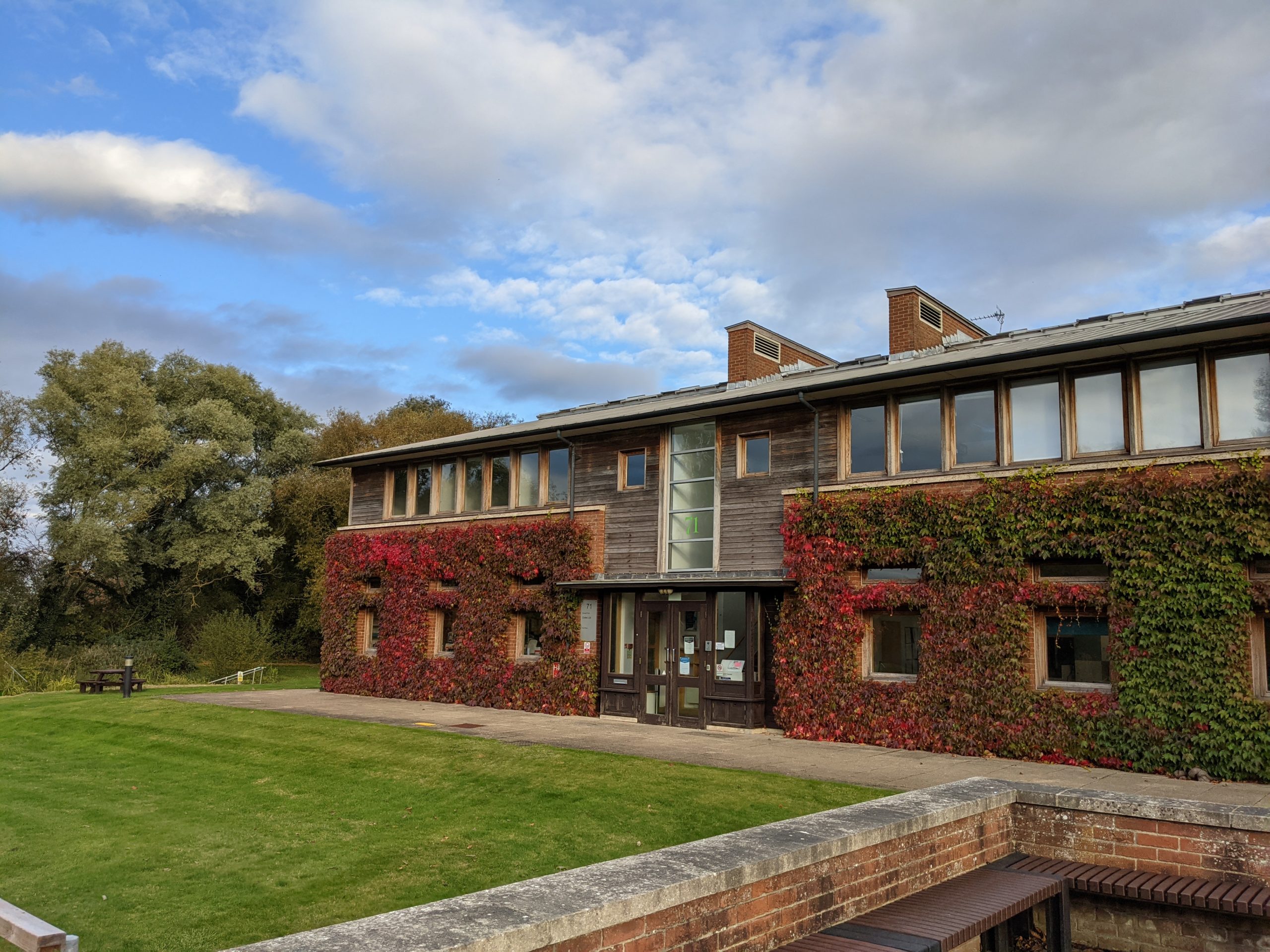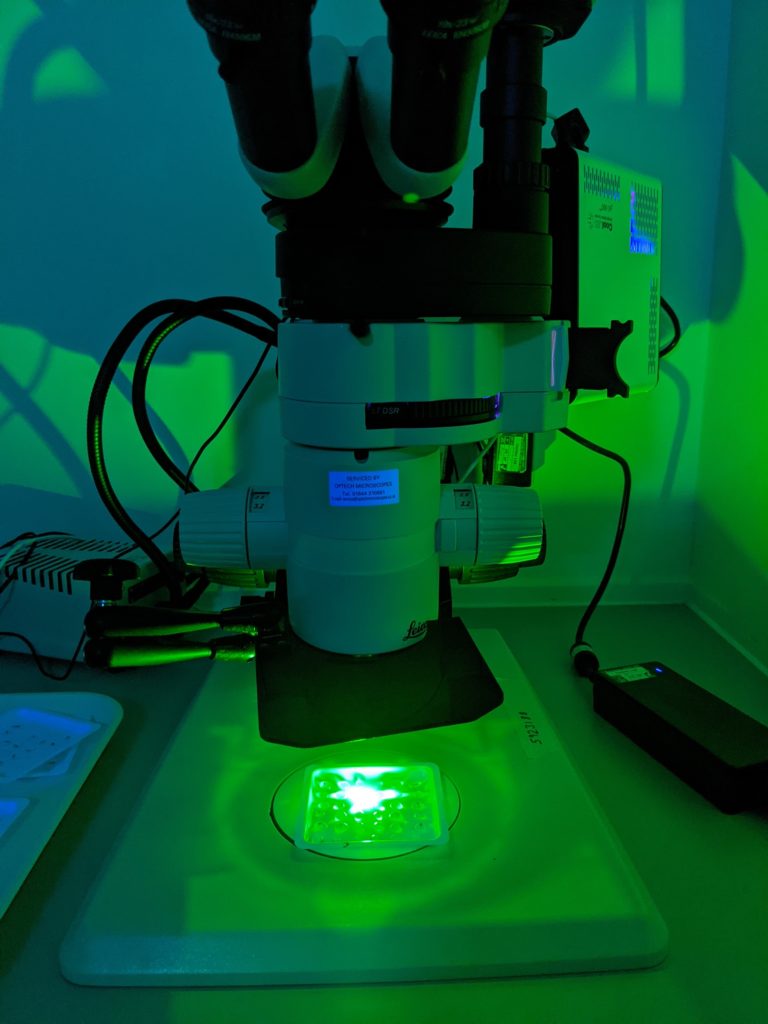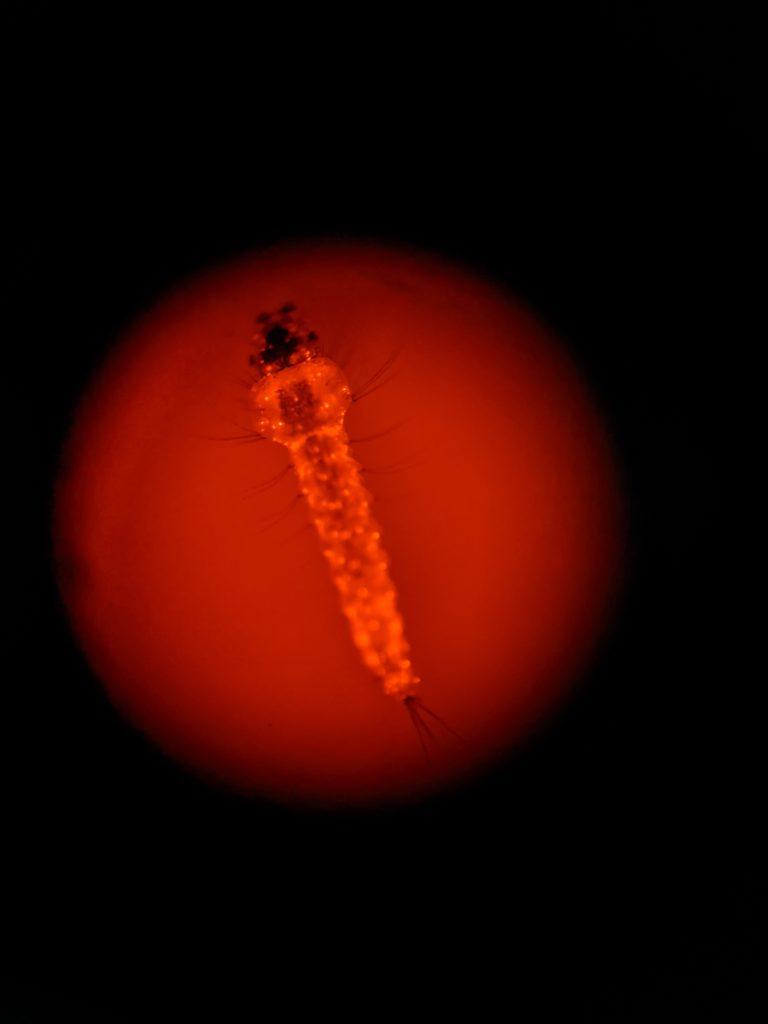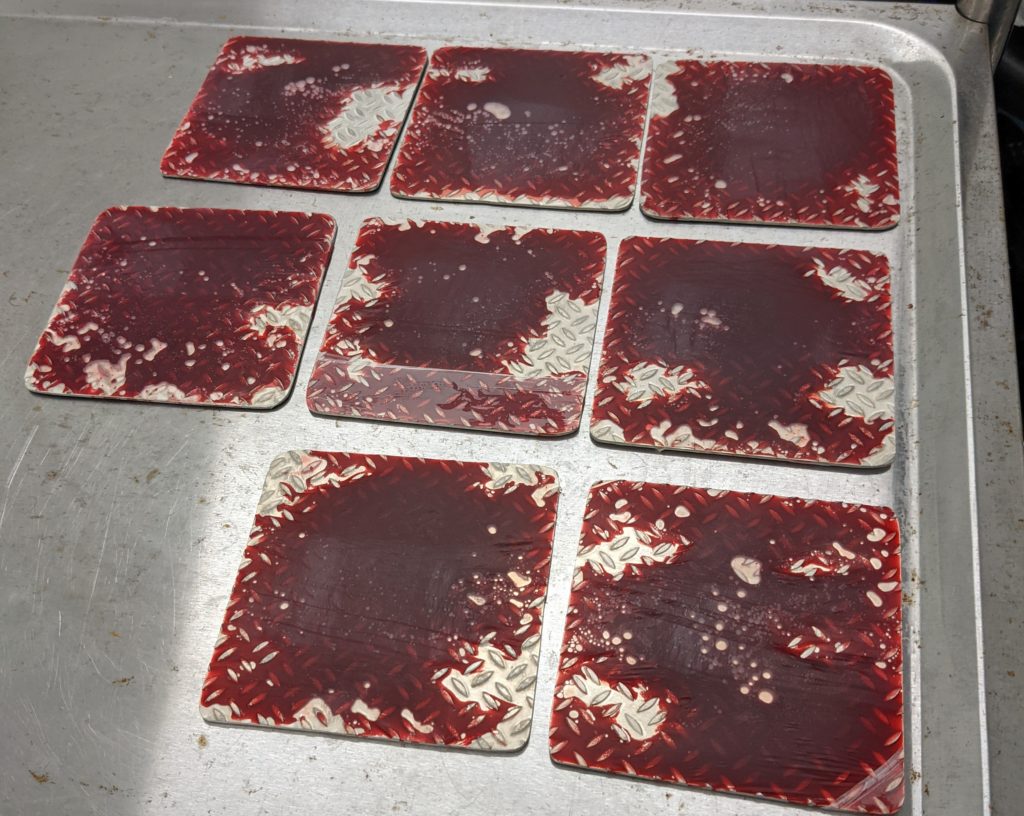Jake is a PhD student at the University of Leeds who completed his PIPS placement at at Oxitec’s UK facility in Milton Park, Oxfordshire. Oxitec are a company that have been leading the way in the use of genetically modified insects as a tool for targeted pest control in areas of global health and agriculture. The most advanced of their projects is with the mosquito Aedes aegypti that transmits several viral diseases including Dengue, Zika and yellow fever. Oxitec’s FriendlyTM Aedes aegypti have been through field trials in Brazil, Panama, Cayman Islands and Florida, and are even now commercially available direct to consumers in Brazil.
The featured image is of the Molecular Building at Oxitec.
What did you do?
My placement was split into three rotations that gave me a broad overview of the work that is required to develop and maintain Oxitec’s transgenic insects. The first of these rotations was within the molecular lab, where transgene constructs are designed and transgenic individuals are genotyped to assess the viability and safety of candidate strains. The molecular team also support field trials by genotyping trap samples to monitor the spread of the transgene in wild populations. My work primarily involved DNA extractions and a variety of PCR reactions to support these tasks across several projects.
My second month was spent with the mass rearing team whose job it is to scale up insect production for future field release. I was brought into the team during a proof of concept experiment to produce 20,000 soy bean looper adults a week. This is a species of moth whose larval stage represents a serious agricultural pest in the Americas. Much of the day to day work revolved around preparing the diet and plastic housing for the larvae, and harvesting the pupae for adult cages before their eclosion. We also had to contend with consistent drawbacks from mould and viral outbreaks. We ran experiments alongside to try and establish the most efficient conditions for producing the best insect yield.
My final month was with the mosquito strain development team. Here I was performing micro-injections on Anopholes mosquito eggs, attempting to generate transgenic lines. I supported the team in maintaining and penetrance testing new lines, as well as screening the offspring larvae of injected mosquitos for first generation transgenics. The transgene includes a DsRed fluorescent marker so that the transgenic insects can easily be distinguished from their wild type counterparts.
What made you want to do that particular placement?
I wanted to get a taste for R&D work within an industry setting and Oxitec is one of the few companies I came across that could offer this whilst combining two areas of biology that I am particularly interested in, insect biology and genetics.
How did you go about finding and planning your PIPS?
For a while I was scanning through the directory of biotech companies listed in biopharmguy.com. I had reached out to several companies with no luck and then I happened upon a BBC article about Oxitec’s Aedes aegypti field trial in Florida and was immediately drawn to the company’s science and objectives.
After I saw this, I found out that an old post-doc from a partner lab at Leeds was now working there. I reached out to her and she helped bring it all together and became my key host contact throughout. This was very fortunate and reinforced the importance of having good connections.
What have you gained from doing your PIPS?
My time at Oxitec gave me a great insight into an industry R&D setting. Having worked in three different areas of the company and across several different projects at differing stages of development, I gained a clear overview of how the company operates. I was also lucky enough to attend two presentations by the CEO of the company whilst I was there which gave me a great perspective of how the technology was being field tested and rolled out abroad.
As well as an appreciation for the inner workings of the company, I developed a wide range of new research skills. My experience moving between labs also gave me a deeper appreciation for the subtle differences that team dynamics and communication can make in research.
How would you sum up your PIPS experience?
My time working at Oxitec showed me first-hand how my skills can be applied directly to tackling real world problems. The rotations gave me a good variety of experience across several different scientific disciplines and meant I was consistently being challenged over the course of the internship. The PIPS has provided me with a refreshing break from the PhD and I’m now going back to my own project with a new perspective and enthusiasm.
What advice would you give other PGRs about PIPS?
When you are looking, think about where you may have contacts already as this will help you get your foot in the door. That being said, there’s no harm in contacting places regardless of whether you know anyone there. Perhaps most importantly, don’t be afraid to keep asking questions throughout your internship… The better understanding you have of what you are doing, the more you will get out of the experience.




